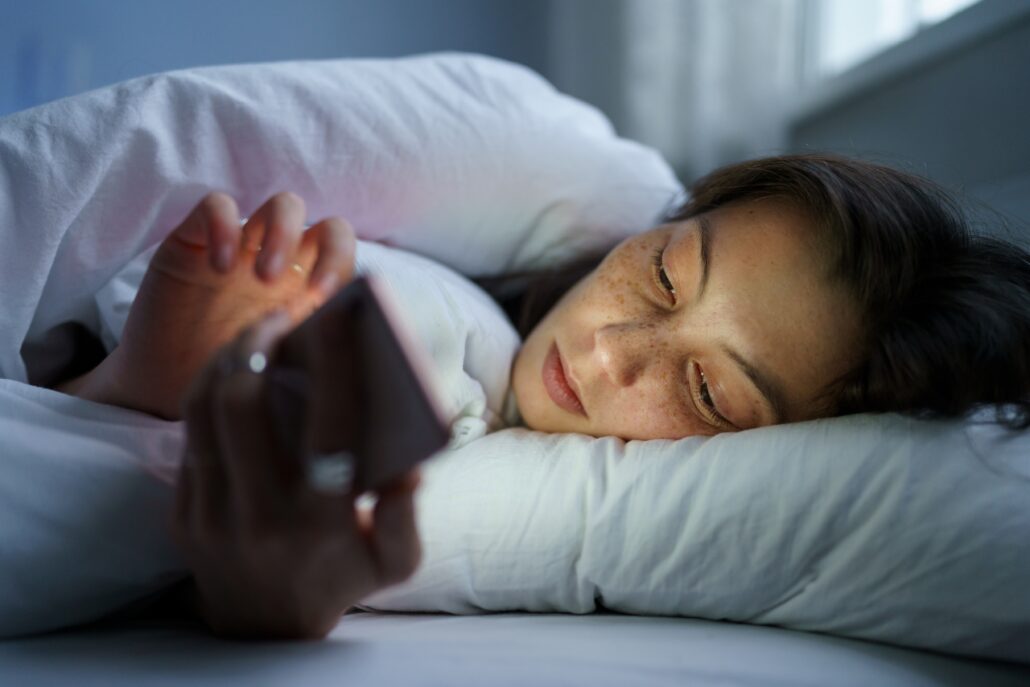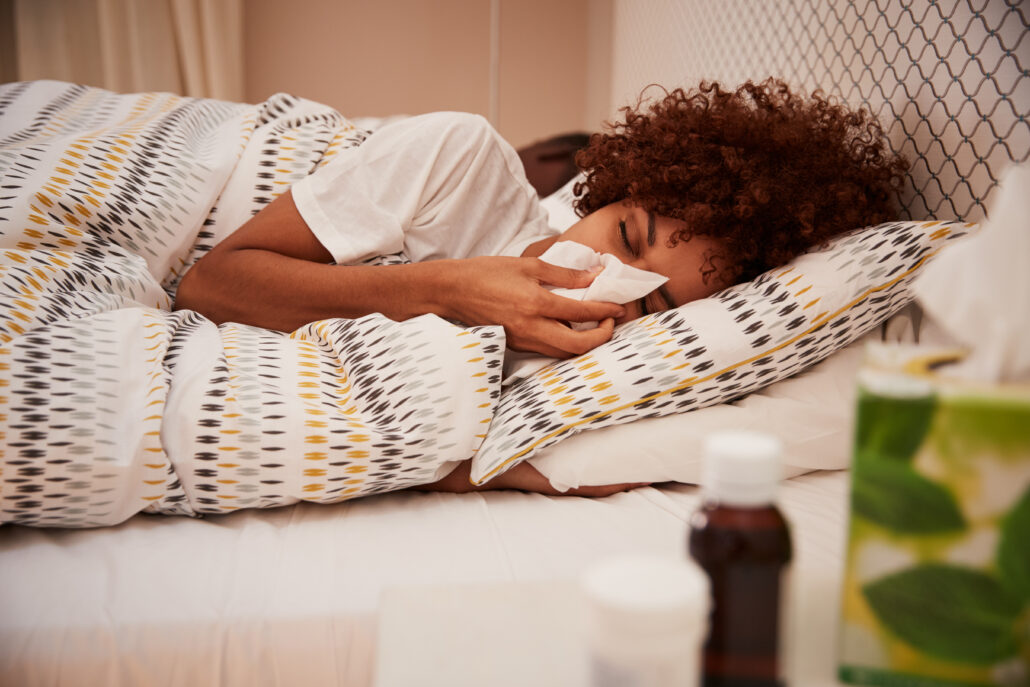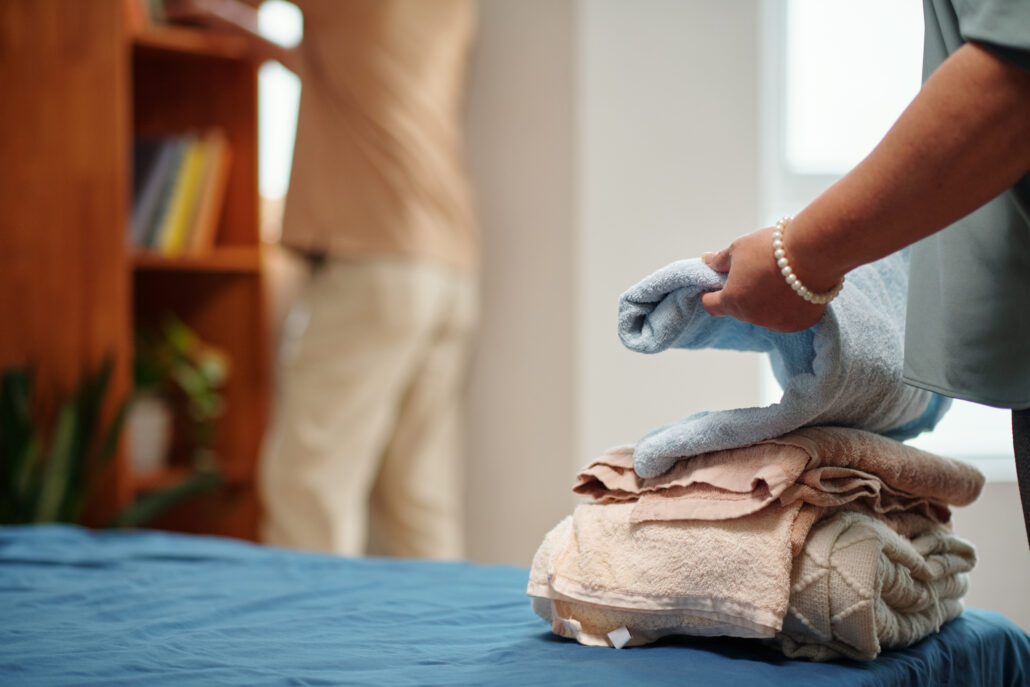
Whether you’re headed to the beach, visiting family or even taking that bucket-list vacation – many of us will be hitting the road this summer. In fact, according to a survey from AAA, 35% of Americans plan to take a summer road trip. That’s a lot of people sleeping in beds other than their own.
Regardless of whether you are traveling for pleasure or business this summer, spending a night away from home can wreck a good night’s sleep. You’ve probably experienced it yourself: events and activities that altered your normal bedtime routine; unfamiliar places, noises or smells that left you tossing and turning, waiting to drift off; that next-day, groggy feeling you thought was just jet lag. It all adds up to make traveling feel downright tiresome.
Blame your brain.
There’s a biological reason why many of us find it difficult to get a good night’s sleep while away from home, regardless of how comfortable the accommodations may be.
According to the National Center for Biotechnology Information, there is a sleep disorder called the first-night effect.
Decades ago, sleep researchers discovered the first-night effect, finding that when we sleep in an unfamiliar space, our brains typically won’t show the slow-wave activity that is associated with deep sleep. Scientists think this may be because our brains are subconsciously keeping some parts of themselves vigilant throughout the night, so we are better able to react to unusual activity or danger. Since our brains remain active, our sleep is easily interrupted, and any sleep we get isn’t as restful or rejuvenating as it should be.
But don’t let that keep you up at night! The good news is that this phenomenon seems to diminish when we spend a second night in the same space, hence the first-night effect moniker.
What can you do?
Getting a good night’s sleep is important no matter where you rest your head. While there’s no way to change how your brain has evolved to adapt to sleeping in an unfamiliar bed, there are a number of things you can do to sleep better while traveling.
- Arrive early, if possible. Since the first-night effect only lasts one night, you can try to arrive at your destination a night earlier. If you have a particularly important morning function or business meeting, this may be your best strategy to ensure you’ll be awake and alert.
- Book a quiet room. Location. Location. Request a room on an upper floor away from the elevators or stairs. This limits the traffic that will pass by your door. SmarterTravel.com also states that rooms midway down a hall tend to be the quietest, as they are typically farther away from exit doors, vending machines and housekeeping closets.
- Pack protection. Earplugs and eyeshades can effectively block out noise and light.
- Bring something familiar. Having your own sheets, pillow or even just the pillow case to use on your bed will offer a recognizable feeling of comfort.
- Silence your phone. This may seem like a no-brainer, but it’s especially important to remember when you are traveling to a different time zone than family, friends and co-workers.
- Keep your cool. While thermostats can be notoriously frustrating to use wherever you may be, try to find a setting that makes your room about 65 degrees Fahrenheit at night, which is the ideal temperature for sleeping.
- Avoid stimulation just before bed. Put down your smartphone. Turn off the TV. Abstain from drinking alcohol an hour before you plan on climbing into bed. Instead, read a book. Sip chamomile tea. Or, take a warm bath.
- Stay loyal to a chain. If you plan on staying in a hotel, it will usually feature the same type of mattress in all its properties. So if you’ve experienced a good night’s rest at a certain hotel, chances are better that you’ll sleep well at another location operated by that same brand. (And if you find that you’re sleeping better on the hotel mattress, maybe it’s time to think about what you are sleeping on at home. When was the last time you replaced your mattress?)
Whether you stay in a high-rise hotel, a roadside bed-and-breakfast or in your best friend’s guest room while on your summer vacation, follow these sleep and travel tips to get some rest when you spend your night away from home. With better sleep, you’ll be able to enjoy your travels even more.
For more advice on improving your sleep while traveling, watch these tips from our resident sleep expert, Lissa Coffey.
Don’t forget to sign up for our newsletter, The Snoozzze, to get the latest sleep research and tips to help you get better sleep.
- https://newsroom.aaa.com/2017/02/family-vacations-still-popular-priority-millions-americans/
- https://www.ahla.com/sites/default/files/Lodging_Industry_Trends_2015.pdf
- https://www.ncbi.nlm.nih.gov/pubmed/27112296
- https://www.smartertravel.com/2017/06/19/33-ways-sleep-better-hotel/
- https://www.wsj.com/articles/its-not-you-hotel-thermostats-really-are-rigged-1485371225
- https://www.nytimes.com/2017/08/25/travel/good-sleep-at-hotels.html
This blog provides general information about sleep and sleep products. The words and other content provided in this blog, and in any linked materials, are not intended to replace a one-on-one relationship with a qualified heath care professional. This blog should not be construed as medical advice or used to diagnose, treat, prevent or cure any disease or condition. If the reader or any other person has a medical concern, he or she should consult with an appropriately-licensed physician or other health care professional. This blog is not a substitute for professional medical advice, diagnosis or treatment, and should not be relied upon to make decisions about your health or the health of others. Never disregard professional medical advice or delay in seeking it because of something you have read on this blog or elsewhere on bettersleep.org. If you think you may have a medical emergency, immediately call your doctor or dial 911.



